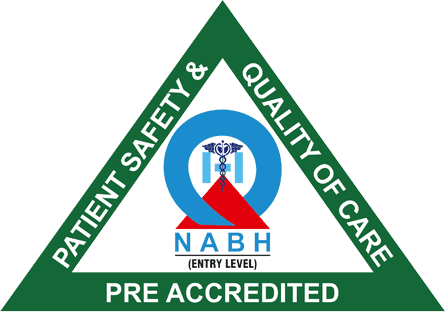LASIK eye surgery has been a game-changer for millions, offering freedom from glasses and contact lenses. But is LASIK still an option for older adults? As we age, our eyes undergo natural changes, raising questions about the effectiveness, safety, and suitability of LASIK for seniors. This article dives deep into the topic, exploring everything from age limits to recovery times, to help you make an informed decision.
Understanding LASIK Eye Surgery
LASIK (Laser-Assisted In Situ Keratomileusis) is a popular vision correction procedure that reshapes the cornea to improve how light is focused onto the retina. This correction can address nearsightedness, farsightedness, and astigmatism, often eliminating the need for glasses or contacts.
Is There an Age Limit for LASIK?
Technically, there is no upper age limit for LASIK. However, eligibility depends more on the health of your eyes rather than your chronological age. People as young as 18 can undergo LASIK, but for older adults, especially those over 40, additional factors come into play.
LASIK After 40: What Changes?
After 40, many individuals experience presbyopia, a natural age-related condition that affects near vision. This can make reading without glasses challenging. While LASIK can correct distance vision, it doesn’t prevent presbyopia. Some patients opt for monovision LASIK, where one eye is corrected for distance and the other for near vision.
LASIK for Seniors: Is It Safe?
LASIK for seniors can be safe, provided you meet specific health criteria. The key factors include:
- Stable Vision: Your prescription should be stable for at least a year.
- Healthy Eyes: No active eye diseases like glaucoma, cataracts, or macular degeneration.
- General Health: Conditions like uncontrolled diabetes can affect healing.
Consulting the best LASIK surgeon in Mumbai can help determine if you’re a suitable candidate.
When is LASIK Not Recommended?
LASIK may not be recommended if you have:
- Severe dry eyes
- Advanced glaucoma
- Cataracts affecting vision
- Unstable prescription
- Corneal thinning disorders
In such cases, alternative procedures like PRK vs LASIK might be considered.
PRK vs LASIK: Which is Better for Older Adults?
While both procedures aim to correct vision, PRK (Photorefractive Keratectomy) differs from LASIK in technique. PRK removes the corneal surface layer before reshaping, making it suitable for patients with thinner corneas. Recovery time is longer for PRK, but it may be safer for seniors with specific corneal conditions.
Risks of LASIK for Seniors
Like any surgery, LASIK carries risks, including:
- Dry eyes
- Glare or halos around lights
- Under or over-correction
- Flap complications
The risks of LASIK for seniors may be slightly higher due to age-related eye changes. However, selecting an experienced surgeon minimizes these risks.
Recovery Time After LASIK for Seniors
The recovery time after LASIK for seniors can vary. Most patients notice improved vision within 24-48 hours, but complete healing might take a few weeks. Older adults may experience a slightly longer recovery due to slower healing processes.
After LASIK Surgery Precautions
- Avoid rubbing your eyes
- Use prescribed eye drops to prevent dryness and infection
- Wear protective eyewear as recommended
- Limit screen time initially
- Attend follow-up appointments diligently
Finding the Best LASIK Surgeon in Mumbai
Choosing the best LASIK surgeon in Mumbai is crucial, especially for older adults. Look for:
- Board certification and credentials
- Extensive experience with senior patients
- Positive patient reviews
- Advanced technology for diagnostics and surgery
Vision Correction for Aging Eyes: Alternatives to LASIK
If LASIK isn’t suitable, consider other vision correction for aging eyes options:
- Refractive Lens Exchange (RLE): Replaces the eye’s natural lens, addressing presbyopia and cataracts.
- Cataract Surgery with Premium IOLs: Corrects vision while removing cataracts.
- Implantable Collamer Lenses (ICLs): Suitable for high prescriptions.
Conclusion
While age alone doesn’t disqualify you from LASIK, factors like eye health, prescription stability, and overall health play significant roles. Consulting with the best LASIK surgeon in Mumbai ensures a thorough evaluation and personalized advice. Whether you choose LASIK or another procedure, achieving clearer vision is possible at any age.
Frequently Asked Questions (FAQs)
- Is there an age limit for LASIK?
No, but candidacy depends on eye health rather than age. - Can I get LASIK after 40?
Yes, but presbyopia may affect near vision even after surgery. - What are the risks of LASIK for seniors?
Risks include dry eyes, glare, and slower healing, but these can be minimized with proper care. - How long is the recovery time after LASIK for seniors?
Initial recovery is quick (1-2 days), but complete healing may take a few weeks. - Is PRK better than LASIK for older adults?
PRK may be preferred for those with thinner corneas or certain eye conditions.















